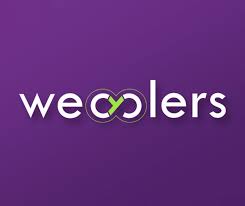Tetra Pak and WeCyclers have launched a promising initiative aimed at tackling waste management challenges in Lagos, Nigeria. This scheme incentivizes local residents to recycle used beverage cartons, seeking to enhance the cleanliness of the city while simultaneously boosting the local economy. The collaboration is not just about improving waste disposal practices; it’s a multifaceted approach that aims to address environmental issues, create job opportunities, and foster a sense of community responsibility towards recycling. By rewarding those who participate in the recycling program, the initiative encourages responsible waste management habits, which are crucial for a city like Lagos, where waste accumulation often poses significant environmental and health risks.
The challenge of waste management in developing countries, especially in rapidly urbanizing cities like Lagos, is a pressing issue. Traditional waste disposal systems frequently fall short due to the increasing population and urban sprawl, leading to rubbish piling up in streets, waterways, and unregulated dumpsites. These conditions not only mar the aesthetics of the urban environment but also pose considerable health hazards for residents. With infrastructure struggling to keep pace with population growth, innovative solutions such as the Tetra Pak and WeCyclers partnership become crucial for instilling effective waste management practices. The initiative is a step toward transforming the perception of waste, treating it as a valuable resource rather than just refuse.
Experts have noted the importance of such initiatives in addressing Lagos’ waste management crisis. By focusing on turning waste into a resource, Tetra Pak and WeCyclers are setting a benchmark for other cities facing similar environmental challenges. The collaboration symbolizes a shift in how waste can be perceived and managed within urban settings, proposing a model that combines ecological responsibility with economic opportunity. This dual focus allows the initiative to address fundamental problems associated with waste while simultaneously providing additional income streams for local residents, hence expanding its impact.
At a recent industry event, Propak West Africa, Tetra Pak officials emphasized the company’s commitment to sustainability within Nigeria. Haithem Debbiche, Managing Director of Tetra Pak West Africa, articulated a vision for a low-carbon circular economy where sustainable recycling solutions are at the forefront. This involves enhancing the recycling value chain and establishing a robust local recycling industry to support initiatives like that of WeCyclers. The partnerships formed around this endeavor, including with entities like Oliver Adam and other future collaborators, aim to create a structured approach to waste collection and recycling, enabling a more effective and efficient system to meet local needs.
While the initiative is still in its infancy, the enthusiasm displayed by residents reflects a positive trend. The initial response suggests that if the program is successful in Lagos, it could serve as a prototype for other regions in Nigeria and potentially other developing nations grappling with similar waste management challenges. By engaging the community and providing incentives for recycling, Tetra Pak and WeCyclers not only work to clean up the urban environment but also nurture a culture of recycling and sustainability among the populace. This grassroots involvement is vital for fostering long-term behavioral changes when it comes to waste disposal.
In conclusion, the partnership between Tetra Pak and WeCyclers represents a innovative approach to confronting the waste management crisis in Lagos. By creating a system that rewards responsible waste disposal while also generating economic benefits for local residents, the initiative echoes a growing recognition that effective waste management is essential for urban sustainability. With the potential for replication in other areas facing similar environmental obstacles, this collaboration could pave the way for a cleaner, healthier, and more economically viable future not only in Lagos but across other cities and developing countries worldwide.


